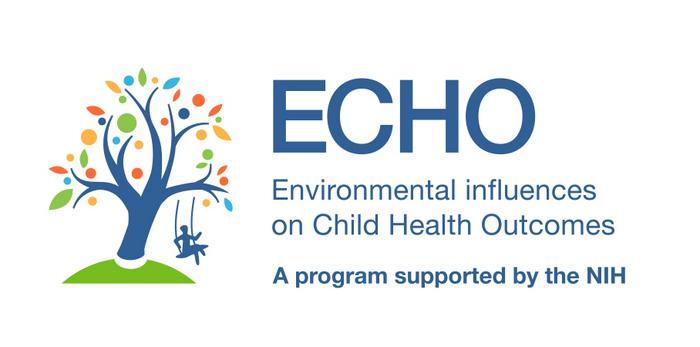Children who live in areas with natural spaces (e.g., forests, parks, backyards) from birth may experience fewer emotional issues between the ages of 2 and 5, according to a study funded by the NIH Environmental Influences on Child Health Outcomes (ECHO) program.

Credit: NIH ECHO Program
Children who live in areas with natural spaces (e.g., forests, parks, backyards) from birth may experience fewer emotional issues between the ages of 2 and 5, according to a study funded by the NIH Environmental Influences on Child Health Outcomes (ECHO) program.
While research has suggested that time in nature is important for mental health, studies examining the effects on young children are limited. ECHO investigators addressed this research gap by analyzing information from parents about the behavior of their children from ages 2 to 11. They combined this data with the family’s residential address when the child was born and satellite data on live vegetation density around their homes.
What researchers found in their analysis, published in JAMA Network Open, was that higher levels of green spaces up to three-fourths of a mile from a child’s home were linked with lower anxiety and depression symptoms from ages 2 to 5 years. The association persisted even after researchers factored in the child’s sex, parent education, age at birth, and neighborhood socioeconomic vulnerability. Researchers did not find a significant association between green space around the home and mental health symptoms in later childhood years from ages 6 to 11, when children spend more time at school.
“Our research supports existing evidence that being in nature is good for kids,” said Nissa Towe-Goodman, PhD, an ECHO researcher from the Frank Porter Graham Child Development Institute at the University of North Carolina, Chapel Hill. “It also suggests that the early childhood years are a crucial time for exposure to green spaces.”
Most research so far has been limited to studying one or a few cities at a time, and focused on adult health. Because the ECHO Program collects data nationwide, researchers were able to examine data from children in 199 counties across 41 U.S. states, exploring the connection between exposure to green spaces from birth and anxiety, depression, aggression, and other symptoms during early or middle childhood.
The study included children born between 2007 and 2013 and whose parents completed the Child Behavior Checklist, a common survey to rate a child’s emotional and behavioral symptoms. The 2,103 children included in the study ranged in age from 2 to 11, spanning early and middle childhood.
Green space exposure was measured using the Normalized Difference Vegetation Index (NDVI), a widely used metric for quantifying vegetation density using sensor data. NDVI values range from -1 to 1. High NDVI values (approximately 0.6 to 0.9) represent dense vegetation, such as forests; values close to zero represent areas without live vegetation.
“In the future, researchers could look into what kinds of experiences in nature are connected to kids’ early mental health,” said Dr. Towe-Goodman. “Also, we should study how creating or preserving natural areas around homes and schools might make a difference in a child’s mental health.”
Dr. Towe-Goodman lead this collaborative research in JAMA Network Open.
###
About ECHO:
Launched in 2016, the Environmental influences on Child Health Outcomes (ECHO) Program is a research program in the Office of the Director at the NIH with the mission to enhance the health of children for generations to come. ECHO investigators study the effects of a broad range of early environmental influences on child health and development. For more information, visit echochildren.org.
About the NIH: NIH, the nation’s medical research agency, includes 27 Institutes and Centers and is a component of the U.S. Department of Health and Human Services. NIH is the primary federal agency conducting and supporting basic, clinical, and translational medical research, and is investigating the causes, treatments, and cures for both common and rare diseases. For more information, visit www.nih.gov.
Journal
JAMA Network Open
Method of Research
Observational study
Subject of Research
People
Article Title
Children who live in areas with natural spaces (e.g., forests, parks, backyards) from birth may experience fewer emotional issues between the ages of 2 and 5, according to a study funded by the NIH Environmental Influences on Child Health Outcomes (ECHO) program. While research has suggested that time in nature is important for mental health, studies examining the effects on young children are limited. ECHO investigators addressed this research gap by analyzing information from parents about th
Article Publication Date
10-Apr-2024



